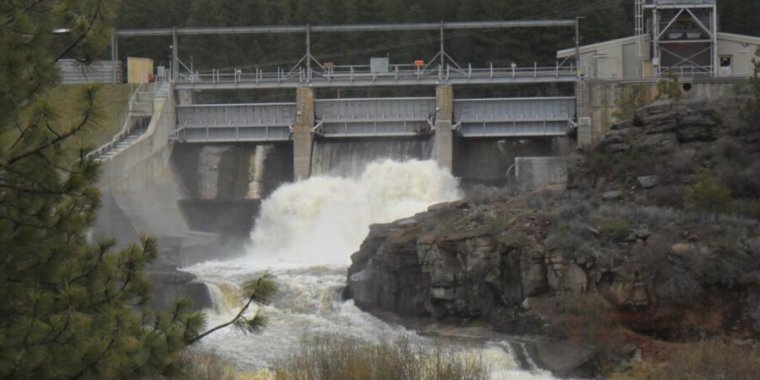As US dams age, removal is always an option—and it can be done well.
Wending its way from the Olympic Mountains to the Strait of Juan de Fuca, Washington’s Elwha River is now free. For about century, the Elwha and Gilnes Canyon Dams corralled these waters. Both have since been removed, and the restoration of the watershed has started.
The dam-removal project was the largest to date in the US—though it won’t hold that position for long. The Klamath River dam removal project has begun, with four of its six dams—J.C. Boyle, Copco No. 1, Copco No. 2, and Iron Gate—set to be scuppered by the end of the year, and the drawdown started this week. (In fact, Copco No. 2 is already gone.)
Once the project is complete, the Klamath will run from Oregon to northwestern California largely unimpeded, allowing sediment, organic matter, and its restive waters to flow freely downriver while fish like salmon, trout, and other migratory species leap and wriggle their way upstream to spawn.
Across the US, dams are being removed for various reasons. Many are simply old. “They’re in rivers beyond their designated life span,” said Lucy Andrews, a doctoral student at the University of California, Berkeley, who studies water resource management. “They have a high potential of failure, particularly when climate change is considered.” In other words, these dams weren’t designed for today’s capricious precipitation regimes. Other dams no longer function in the way they were designed, said Jonathan Warrick, a coastal geomorphologist with the US Geological Survey.
Removal can also reverse ecological damage that, in the western US, often harms migratory fish but can also cause problems for other sensitive species and ecosystems. In addition, dams “have displaced tribal nations from their lands and severed connections to culturally important waterways and species,” Andrews said, speaking specifically about California. “In these contexts, dam removal can actually be an important step toward repair.”



Yeah about dam time
I see what you did there.